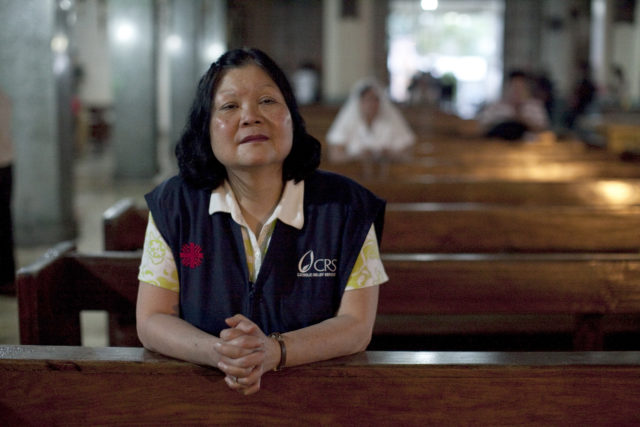Church Hierarchy Must Invite Dialog, Exchange Viewpoints
By Carolyn Woo
At the opening of the Fifth National Encuentro in Grapevine, Texas, San Antonio Archbishop Gustavo Garcia-Siller said, “You are right to be heartbroken.” Much attention by church leaders, as it should be, is directed at new promises to take abuse seriously, encourage reporting, care for victims and establish safeguards. Yet little is said of the brokenhearted laity. Could the clergy and church leaders feel the anguish and grief of a teen who walked out after a homily when the priest made brief mention of his disappointment at the abuse and moved on to some other topic? Could he not sense the devastation that she felt? Or the parishioner who felt that the priest totally evaded accountability when he directed them to the immense good that the church does. And in response to a banner at a campus ministry center that reads, “You are known, loved and valued,” a student ponders, by whom? The church hierarchy? To discouraged folks who no longer see the point in going to Mass, a faith-filled friend offers, “Go for the Person who is on the altar, not the person behind the altar.” Is this comforting to our clergy and church leaders? In addition to the inexcusable harm to the victims of sexual abuse, another injury is the deep gash inflicted on the collective body with the rupture in trust and the questioning of the church as an effective, and even to some, a necessary institution. We must be humble enough to accept that some people who criticize or leave the church are not those who do not care, who do not seek God or who are overtaken with worldly priorities. They may actually care deeply about their journey to and with God but simply do not know where to place the failures and hypocrisies they have witnessed. We can choose to welcome them as a call to greater holiness. To the clergy, believe it or not, we the laypeople are not looking for the perfect clergy who do not make mistakes. We rally for those of you who know you can make mistakes, who are aware of your weaknesses, who will seek guidance and assistance, and who will turn to us as we have turned to you in the name of Christ for forgiveness, the currency for hope and healing. We want to hear from you what has gone awry, what was painful, how to be better together and invite you to hear the same from us. You need to trust that we love the church as much as you do because you have taught us that the church is established by Christ to celebrate his presence and carry out his ministry of love. Peter asked, “To whom shall we go?” Well, the answer is no other place. But it will no longer be enough to speak to us through statements from the diocesan offices of communication, in bishops’ letters, through new policies and procedures to protect youth or even in the Masses and prayers for healing. We ask you, bishops and clergy, to come into our midst, to invite dialogue, to engage: an act that entails beholding each other face to face, listening, exchanging viewpoints, empathy and finding new paths together. Jesus came into the world because physical presence in the flesh is how he wished to be known and how he wishes to know us. Presence is the precursor to understanding that makes it possible for friendship and ultimately intimacy. Without intimacy, how can we be family? And how can we be church, the body of Christ, without being family? May the grace of God start our engines.
|
.
Any original material on these pages is copyright © BishopAccountability.org 2004. Reproduce freely with attribution.
